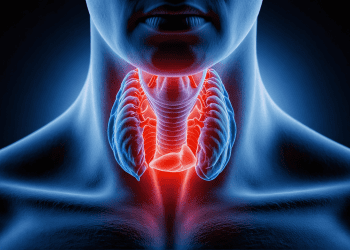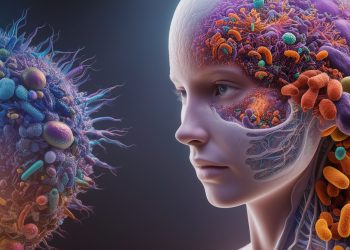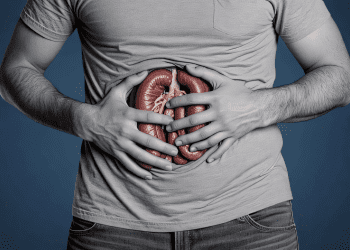High cholesterol, it’s a silent killer that can sneak up on you without warning. But don’t worry, you’re not alone. Many people struggle with high cholesterol, and knowing the signs, causes, and most importantly, how to lower it is important.
Let’s face it, we all want to live our best lives, and high cholesterol can get in the way of that. But don’t let it control you. Take charge of your health and learn the facts and tips on how to beat high cholesterol.
In this article, we’ll explore the symptoms and methods to reduce high cholesterol, so you can live a healthier, happier life. Don’t let high cholesterol be the silent killer that takes control of your health. Take action today and start your journey to a healthier you!
| Key Takeaways |
| High cholesterol is a major risk factor for heart disease, stroke, and other cardiovascular diseases. |
| Familial hypercholesterolemia is a genetic disorder that can cause high levels of LDL cholesterol. |
| Poor diet, lack of exercise, smoking, and obesity can all contribute to high cholesterol levels in the body. |
| Medications called statins are commonly used to lower cholesterol levels and reduce the risk of cardiovascular disease. |
| Regular cholesterol screenings are important, especially if you have risk factors. |
| Maintaining healthy cholesterol levels can prevent heart disease and stroke. |
| Eating a healthy diet, exercising, quitting smoking, limiting alcohol, and managing stress can help lower cholesterol levels. |
| Testing for cholesterol is necessary for good health and can help with early detection and treatment. |
| Men over 35 and women over 45 should get their cholesterol checked. People with a family history of heart issues should get checked frequently. |
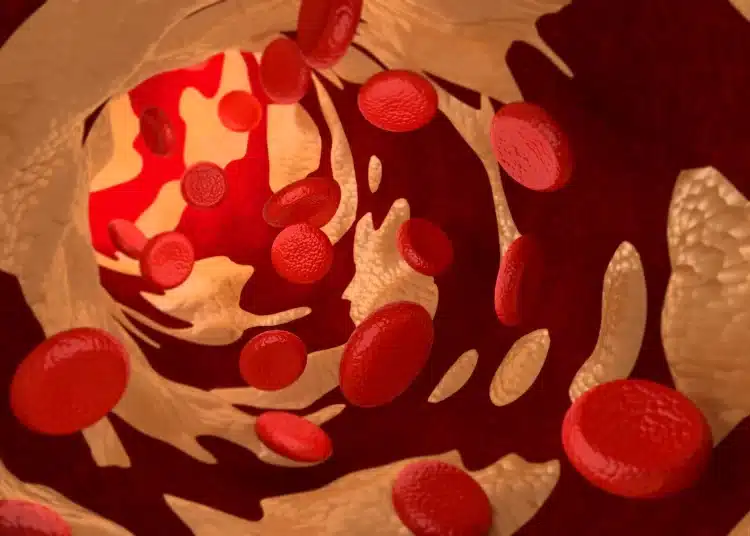
Five Well-Known Facts About High Cholesterol Symptoms and Causes:
- ✅ High cholesterol is a major risk factor for heart disease, stroke, and other cardiovascular diseases. (Source: CDC)
- ✅ High levels of “bad” cholesterol (LDL) in the blood can lead to plaque buildup in the arteries. (Source: MayoClinic)
- ✅ Familial hypercholesterolemia (FH) is a genetic disorder that can cause high levels of LDL cholesterol. (Source: American Heart Association)
- ✅ Poor diet, lack of exercise, smoking, and obesity can all contribute to high cholesterol levels in the body. (Source: Harvard Health)
- ✅ Medications called statins are commonly used to lower cholesterol levels and reduce the risk of cardiovascular disease. (Source: Mayo Clinic)
Definition of Cholesterol
Cholesterol is a waxy substance found in the blood. It helps build healthy cells. But, too much cholesterol can form fatty deposits in your blood vessels and arteries. This raises the risk of heart disease, stroke, and other problems.
Knowing what cholesterol is is the first step to understanding its causes, prevention, and symptoms. It’s important to get regular cholesterol screenings, especially if you have risk factors like diabetes, high blood pressure, or an unhealthy lifestyle.
The good news is that high cholesterol can be prevented and treated. Eating right, exercising, and taking medication can help lower cholesterol levels. Also, avoiding saturated fats, quitting smoking, moderating alcohol intake, and managing stress can help too.
Pro tip: Tracking your cholesterol levels and making healthy lifestyle changes can reduce your risk of heart disease and other complications.
Importance of Maintaining Healthy Cholesterol Levels
Maintain healthy cholesterol levels to avoid health issues like heart disease and stroke. High cholesterol can lead to plaque build-up in your arteries and restrict blood flow.
You can prevent and treat high cholesterol through modifications like eating a healthy diet and exercising. Adults should get a blood test every 4-6 years, or more often if there’s a family history of high cholesterol. Consume fewer saturated and trans fats, and more fruits, veg, and whole grains.
Quit smoking, limit alcohol, and manage stress to keep cholesterol levels healthy. Get familiar with the symptoms and causes of high cholesterol.
Pro tip: live healthily and get your cholesterol checked regularly for optimal heart health.
Risks Associated With High Cholesterol
High cholesterol can be dangerous. Plaque in arteries can lead to blood clots and heart disease. Unfortunately, many people don’t know they have high cholesterol until it’s too late. The Mayo Clinic suggests testing from age 20, every 5 years. Men over 35, and women over 45 should have more frequent tests.
Causes of high cholesterol include a poor diet, lack of exercise, genetics, and obesity. LDL, or bad cholesterol, can cause high levels. HDL, or good cholesterol, helps remove cholesterol from the blood. Triglycerides, a type of fat, can also be a factor.
Tips for lowering cholesterol:
- Maintain a healthy weight.
- Exercise.
- Eat low salt and include fruits, veggies, and lean protein.
- Moderate alcohol.
- Manage stress.
- Talk to a doctor about medication.
Testing for Cholesterol
Testing your cholesterol is a must for good health. Doing it regularly can help you discover high cholesterol symptoms and causes quickly. In this article, we’ll walk you through the testing process and show why it’s so vital to your health. Doing so can help you make lifestyle changes and avoid big health issues.
Importance of Cholesterol Tests
Cholesterol tests are essential for knowing if you are at risk of heart disease. High cholesterol can be prevented and treated. It is a risk factor for many health issues like atherosclerosis, chest pain, and heart attacks. The NHLBI recommends a blood test to measure lipoprotein levels.
Low-salt diets, veggies, good fats, and less alcohol can help maintain healthy cholesterol levels. Look out for signs of high cholesterol like chest pain, bad breath, and fatigue. Early diagnosis and treatment can reduce the risks of heart disease.
Remember: Regular tests and lifestyle changes can help lower the risks of heart disease.
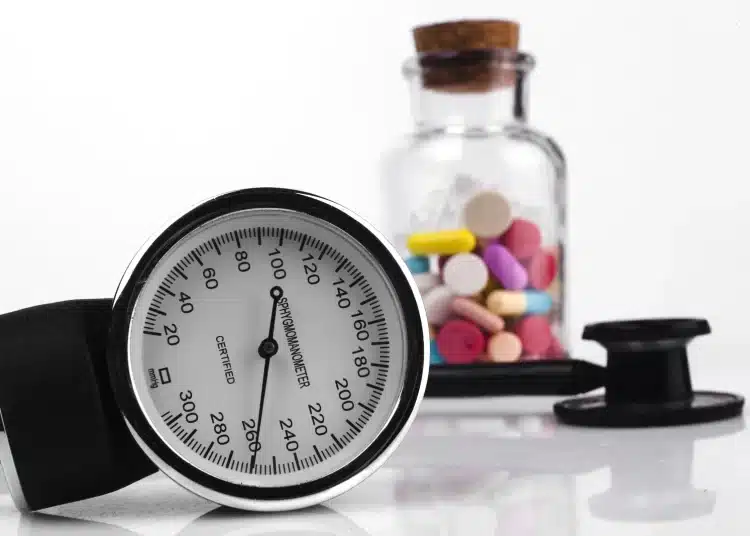
Frequency of Cholesterol Screening Based on Age and Risk Factors
The frequency of cholesterol screening is important for heart health. The National Heart, Lung, and Blood Institute state that men over 35 and women over 45 should get their cholesterol checked. People with a family history of heart issues should get checked frequently.
Screening measures LDL and HDL cholesterol levels which indicate potential heart disease.
Maintaining a healthy lifestyle can prevent and treat high cholesterol. Unmanaged high cholesterol can cause angina and other health issues.
Regular screenings keep individuals up to date on heart health and reduce risks.
Remember, prevention and early detection are key to a healthy heart.
Causes of High Cholesterol
The title “Causes of High Cholesterol” is useful. It helps people know why their cholesterol may be high. Knowing the causes helps them take steps to make their cholesterol better and stop heart disease.
Here are some causes:
- Genes
- Food
- Lifestyle choices
Role of Genetics
Genetics plays a big part in high cholesterol. Poor diet and lack of exercise can contribute as well. Keywords such as low-density lipoprotein, high-density lipoprotein, and hyperlipidemia can help readers understand how genetics affect cholesterol levels. These can lead to coronary artery disease.
High cholesterol is preventable and treatable. Symptoms to watch for are high cholesterol levels and bad cholesterol symptoms. Eating more veggies and fewer animal fats, moderating alcohol, and managing stress can help keep cholesterol down.
For best results, get regular cholesterol checks and talk to a healthcare provider. This can help see if your genetics are causing high cholesterol.
Influence of Lifestyle Choices
Lifestyle choices have a major effect on cholesterol. If it’s high, it can lead to dangerous conditions such as heart disease and stroke.
Eat whole grains, fruits, and veg, rather than high-cholesterol foods. Plus, lean proteins, fish, and low-fat dairy.
To manage cholesterol, moderate alcohol intake and look after yourself with exercise, meditation, or other relaxation techniques. Get to know the symptoms and causes of high cholesterol, like high LDL levels, to choose the proper treatment.
Pro tip: Little changes can make a big difference to cholesterol levels and overall health. Have regular cholesterol checks and talk to a healthcare provider to keep your cholesterol in check.
Impact of Medical Conditions and Medications
Medical conditions and medications can have a big effect on how easily someone gets bug bites and their cholesterol levels. Certain drugs and health problems can make bug bites more likely. People with high cholesterol can have higher levels of inflammation too, which can make bug bites worse.
But there are natural ways to protect against bug bites and control cholesterol. Stress management, drinking less alcohol, and eating lots of fruit and vegetables are good ideas.
It is important to know all about high cholesterol. People should avoid foods that cause high cholesterol and make healthy lifestyle changes to lower their cholesterol. This can stop them from getting hypercholesterolemia and other related illnesses. Tip: Talk to a healthcare worker before you make any big changes to your diet or lifestyle to manage your cholesterol.
Risk Factors for High Cholesterol
High cholesterol can cause dangerous health problems, like heart disease and stroke. So it’s important to know the risks. Identifying these factors helps us take action to keep cholesterol levels healthy. This article will discuss the different risk factors for high cholesterol and how we can reduce their effects on our health.
Poor Diet
Poor diet is a big risk for high cholesterol in both men and women. Eating lots of saturated and trans fats, cholesterol, and refined carbs boosts the amount of LDL (bad) cholesterol in your blood, leading to plaque buildup in your arteries and raising the danger of heart disease and stroke. Be aware of the signs of high cholesterol, like chest pain, numbness, and tingling in your limbs.
Get regular blood tests to track your cholesterol. To lower cholesterol and risk of heart disease, lead a healthy lifestyle – regular exercise, eating fiber-rich, low saturated and trans fat foods, moderate alcohol, and quit smoking.
Pro tip: Talk to a healthcare pro or dietician for personalized advice on diet and lifestyle to manage cholesterol.
Obesity
Obesity is a major cause of high cholesterol. It increases your risk of serious health problems such as heart disease and stroke. Therefore, it’s important to know the symptoms and causes of high cholesterol.
In females, symptoms may include chest, arm, and leg pain, and shortness of breath. Causes may include family history, bad diet, too much alcohol, smoking, and not enough exercise.
Understanding the dangers of high cholesterol can help people to become proactive in their health. They can do this by:
- Eating healthy
- Exercising
- Quitting smoking
Pro Tip: Exercise and a good diet can help to lower and maintain healthy cholesterol levels.
Lack of Exercise
Not enough exercise can cause many health concerns, one of them being high cholesterol. Working out regularly can help decrease cholesterol and make you healthier. Plus, some foods can raise your cholesterol, so you should pick nutritious snacks. Besides medicine, natural treatments like homemade bug repellent with essential oils can help too. Taking steps to be healthier and to lower your cholesterol can stop serious health problems, like heart disease.
Tip: Regular exercise and eating right are the keys to healthy cholesterol.
Smoking and Alcohol Consumption
Smoking and alcohol can significantly raise cholesterol. High cholesterol can cause diseases like heart disease and stroke. To lower risk, cut back or quit smoking and drinking. Also, change diet. Reduce high-cholesterol foods and increase fruit, veg, and whole grains. Taking a comprehensive approach to managing cholesterol will improve health, lower the risk of chronic disease, and boost the quality of life.
Pro tip: Get regular heart check-ups and know your cholesterol numbers!
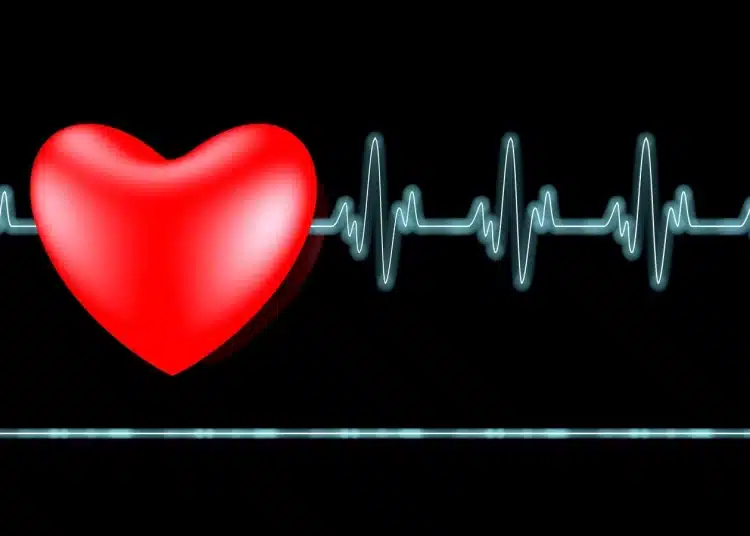
Complications of High Cholesterol
High cholesterol can be hazardous! Therefore, knowing the risks is very important. Our article talks about the problems it can cause, like heart disease and stroke. We also tell you how to stop these health issues from occurring.
The Development of Atherosclerosis
Atherosclerosis is important to comprehend when it comes to knowing and controlling complications of high cholesterol. It’s the accumulation of plaque in your arteries that can, ultimately, lead to stroke and heart disease. This process transpires over time and is affected by many factors such as cholesterol levels, smoking, high blood pressure, and lack of physical activity.
Being aware of the symptoms and causes of high cholesterol is the initial step in avoiding the development of atherosclerosis. Women might experience chest pain, shortness of breath, and numbness in the extremities as symptoms of high cholesterol. Diets high in saturated and trans fats, absence of exercise, alcohol, and hereditary factors are some of the causes of high cholesterol.
Having a healthy lifestyle, including a low-cholesterol diet, frequent exercise, and moderating alcohol consumption, can help stop the development of atherosclerosis and control complications of high cholesterol.
Pro tip: Schedule regular check-ups with your healthcare provider to monitor your cholesterol levels and discuss ways to manage your risk factors.
Risks of Heart Attack and Stroke
It is important to know about the potential for heart attack and stroke, particularly for those with high cholesterol. High cholesterol can cause major issues, such as heart attack and stroke. Age, family history, and diet, along with alcohol consumption, can all lead to high cholesterol. Females who have high cholesterol may experience chest pain, fatigue, and difficulty breathing.
By being aware of the causes and signs of high cholesterol, people can take action to keep their cholesterol levels in check. This includes living a healthy lifestyle, avoiding foods high in cholesterol, and seeing a doctor if needed. Tip: Regular cholesterol tests and healthy habits can help reduce the risks of high cholesterol and its complications.
Prevention and Management
Strategies for prevention and managing high cholesterol are key. To reduce the chance of heart attacks, strokes, and other cardiovascular diseases, individuals should implement lifestyle changes. These include:
- Adopting a heart-healthy diet.
- Increasing physical activity.
Doing so can help prevent and manage high cholesterol symptoms and causes.
Lifestyle Changes to Improve Cholesterol Levels
Making lifestyle changes is an effective way to prevent and manage high cholesterol. Heart disease and stroke, leading causes of death worldwide, are risk factors for high cholesterol.
Get regular exercise, maintain a healthy weight, quit smoking, reduce alcohol consumption, and avoid foods high in saturated and trans fats – all these help improve cholesterol levels.
Be aware of signs and symptoms of high cholesterol – like elevated LDL levels and total cholesterol – and their side effects. This can help take action before it becomes a serious health issue.
By incorporating healthy habits and making lifestyle changes, individuals can lower the risk of developing high cholesterol and reduce the chances of related health issues.
Pro tip: Regular check-ups with a healthcare provider can monitor cholesterol levels and provide guidance for making lifestyle changes.
Medications for High Cholesterol
Medications for high cholesterol can be helpful in prevention and control. They reduce cholesterol levels in the blood, thus lowering the risk of heart disease and related health issues.
It is important to remember that medication is not the only way to manage cholesterol levels. Healthy eating, exercise, and alcohol moderation can also have a positive effect.
Common medications include statins, bile acid sequestrants, and cholesterol absorption inhibitors. You should speak to your healthcare provider to decide which treatment is best for you and to understand the risks and side effects.
If you show signs of high cholesterol or high blood pressure, seek medical help immediately! With the right prevention and management, you can keep your cholesterol levels in check and reduce the risk of serious problems.
Remember: Medication is only one part of managing high cholesterol. Talk to your healthcare provider to determine the best plan for you and incorporate healthy lifestyle changes into your routine.
Follow-up and Monitoring
Monitoring your cholesterol levels is key to preventing and managing high cholesterol. Keep track of your LDL and HDL levels to understand your risk. Females may experience various symptoms, like high cholesterol and hypercholesterolemia. It’s important to monitor these on a regular basis.
Working with your healthcare provider is essential in creating a prevention and management plan. This might involve lifestyle changes, medication, or a combination. Regularly monitoring your cholesterol levels can help avoid complications and optimize your health. Pro tip: Stay on top of check-ups and keep an eye on your cholesterol!
The Importance of Cholesterol Management
Managing cholesterol is key to avoiding various health issues and sustaining well-being. High levels of bad cholesterol can cause heart disease, stroke, and heart attacks. Knowing the value of cholesterol management can assist readers in taking the necessary steps to control their cholesterol levels.
Cholesterol management involves having healthy cholesterol levels through a healthy lifestyle and taking medications, if necessary. Symptoms of high cholesterol can be hard to see and cholesterol screenings are important.
By understanding why cholesterol is high, its effects, and the importance of having healthy levels, people can take steps to prevent cholesterol-related health problems. This includes having a balanced diet, exercising, reducing stress, and quitting smoking.
Pro tip: Regular cholesterol screenings and a healthy lifestyle can help prevent cholesterol-related health issues and enhance overall health.
Encouragement of Informed
Educate yourself about high cholesterol: its symptoms, causes, and effects. In females, it can cause chest pain and shortness of breath. High HDL cholesterol may cause joint pain or muscle weakness. Causes may be genetic or due to diet or lifestyle. Avoid high-cholesterol foods, and add good-cholesterol foods to your diet. Regular checkups and understanding normal cholesterol levels can help with prevention and management.
Pro tip: Get informed about high cholesterol to make wise health choices!
FAQs about High Cholesterol Symptoms And Causes
What are the symptoms of high cholesterol in females?
High cholesterol symptoms may not be noticeable at first, especially in females. However, some common signs of high cholesterol include chest pain, heart attacks or strokes, shortness of breath, and yellowish patches around the eyes.
What are the causes of high cholesterol in a healthy person?
High cholesterol in healthy individuals can be caused by a number of factors, including poor diet, lack of exercise, genetics, smoking, and certain medical conditions like hypothyroidism or diabetes.
Is there a difference between LDL and high LDL cholesterol symptoms?
While there may not be specific symptoms of high LDL cholesterol, it is a major risk factor for heart disease and stroke. Elevated levels of LDL cholesterol increase the risk of plaque buildup in arteries which can lead to heart attack or stroke.
What are some high-cholesterol foods to avoid?
Foods that are high in saturated fats and cholesterol can raise cholesterol levels. Some high-cholesterol foods to avoid include fatty meats, full-fat dairy products, processed and fried foods, and baked goods.
How can I lower my cholesterol?
Lowering high cholesterol can be achieved through lifestyle changes such as eating a heart-healthy diet, regular physical activity, maintaining a healthy weight, and avoiding smoking. Some individuals may need medication to help lower their cholesterol levels.
What are normal cholesterol levels for adults?
It’s important to note that normal cholesterol levels for adults can vary based on a range of factors such as age, sex, and lifestyle. According to the American Heart Association, it’s recommended that most adults maintain total cholesterol levels below 200 milligrams per deciliter (mg/dL)
Paying attention to cholesterol numbers is crucial as they can help assess a person’s risk for heart disease. High cholesterol levels can lead to atherosclerotic plaque formation, which can cause serious health complications. Therefore, maintaining healthy cholesterol levels through a balanced diet, regular exercise, and routine check-ups with a healthcare provider is essential for overall cardiovascular health.
We’ve provided a helpful chart below indicating healthy cholesterol levels by age to provide a more specific breakdown. For adults over 20 years old, it’s desirable to have a total cholesterol level of less than 200 mg/dL.
Total Cholesterol Levels by Age
| Age/Sex | Classification | Total Cholesterol |
| Males 19 and younger | Normal | Less than 170 mg/dL |
| Borderline | 170–199 mg/dL | |
| High | Greater than or equal to 200 mg/dL | |
| Males 20 and older | Normal | 125–200 mg/dL |
| Borderline | 200–239 mg/dL | |
| High | Greater than or equal to 239 mg/dL | |
| Females 19 and younger | Normal | Less than 170 mg/dL |
| Borderline | 170–199 mg/dL | |
| High | Greater than or equal to 200 mg/dL | |
| Females 20 and older | Normal | 125–200 mg/dL |
| Borderline | 200–239 mg/dL | |
| High | Greater than or equal to 239 mg/dL |
LDL Cholesterol Range by Age and Assigned Sex
| Age/Sex | Classification | LDL |
| Males 19 and younger | Normal | Less than 110mg/dL |
| Borderline | 110-129mg/dL | |
| High | Greater than or equal to 130mg/dL | |
| Males 20 and older | Normal | Less than 100 mg/dL |
| Borderline | 130-159 mg/dL | |
| High | 160-189mg/dL | |
| Females 19 and younger | Normal | Less than 110mg/dL |
| Borderline | 110-129mg/dL | |
| High | Greater than or equal to 130mg/dL | |
| Females 20 and older | Normal | Less than 100 mg/dL |
| Borderline | 130-159 mg/dL | |
| High | 160-189mg/dL |
The table displays the LDL cholesterol range for different age groups and assigned sexes. LDL cholesterol levels are categorized as Normal, Borderline, or High based on the assigned sex and age group.
HDL Cholesterol Range by Age and Assigned Sex
| Age/Sex | Classification | HDL |
| Males 19 and younger | Optimal | More than 45 mg/dL |
| Males 20 and older | Optimal | More than 40 mg/dL |
| Females 19 and younger | Optimal | More than 45 mg/dL |
| Females 20 and older | Optimal | More than 50 mg/dL |
Note: HDL cholesterol is often referred to as “good” cholesterol because it helps remove LDL (bad) cholesterol from the bloodstream, reducing the risk of heart disease.
Final Thoughts
High cholesterol is a significant risk factor for heart disease and stroke. It is caused by poor diet, lack of exercise, genetics, and obesity, among other factors. However, it is preventable and treatable through lifestyle modifications such as eating healthy, exercising regularly, and medication.
Regular cholesterol screenings are important, particularly for individuals with risk factors such as diabetes, high blood pressure, or an unhealthy lifestyle. Managing stress, quitting smoking, and moderating alcohol intake can also help lower cholesterol levels. With early detection and treatment, individuals can avoid the risks associated with high cholesterol and maintain optimal heart health.




